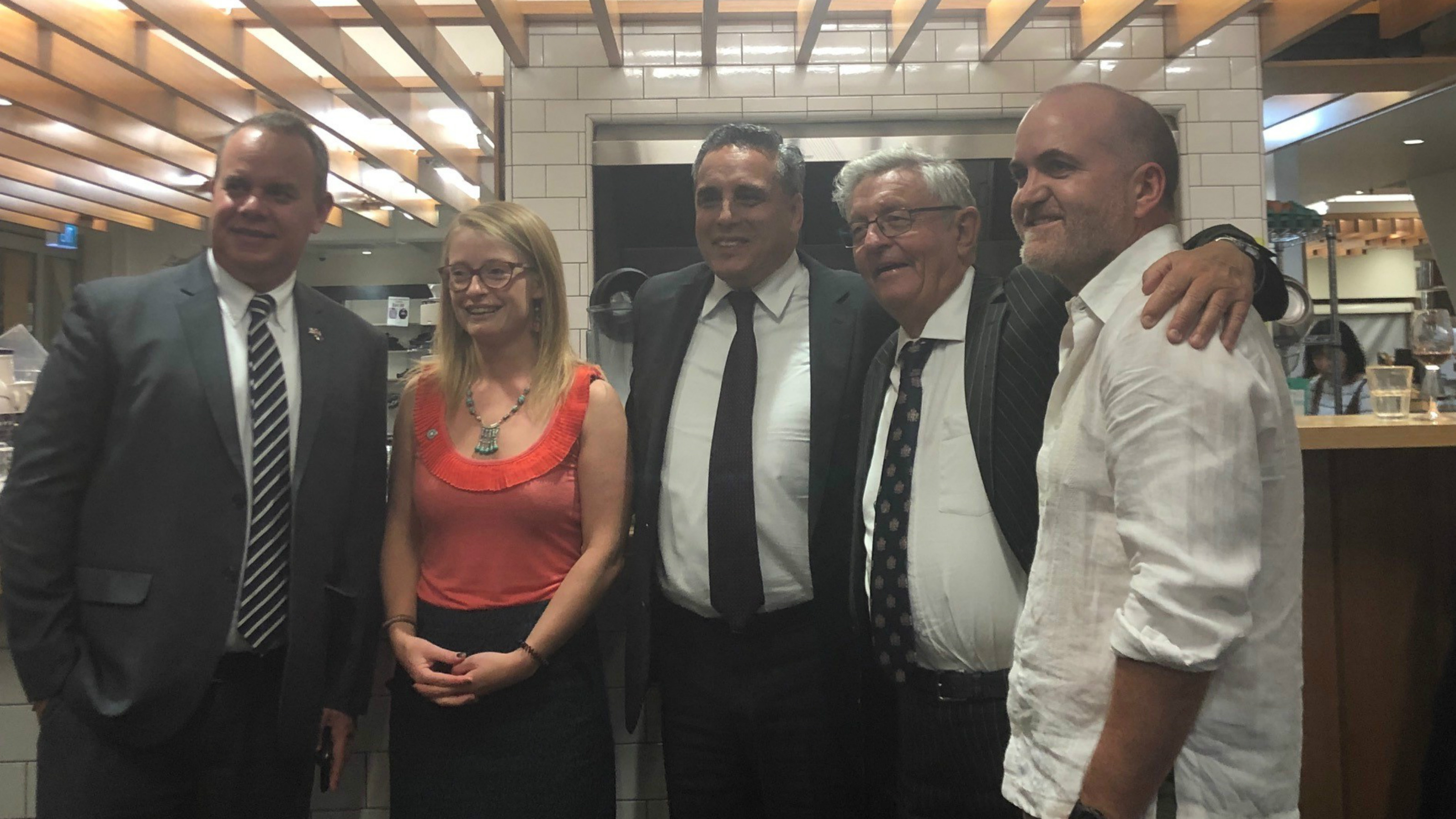Gatherings
From Dannevirke to Bogotá and back: the first collection of James K Baxter Poems in Spanish is launched at Victoria University of Wellington
11 April 2019

Published by Colombian publisher Lobo Blanco Editores, and translated by Caleb Harris, El Jesús maorí y otros poemas was launched last Thursday at Vic Books. The event, co-hosted by the School of Languages and Cultures, the New Zealand Centre for Literary Translation/ Te Tumu Whakawhiti Tuhinga o Aotearoa, NEKE, The New Zealand Journal of Translation Studies, and Vic Books was attended by distinguished guests, their Excellencies the Argentine Ambassador Fausto Lopez Crozet, the Cuban Ambassador Mario Alzugaray, the Honorary Colombian Consul in New Zealand, Peter Cullen, along with colleagues, friends and whanau.
In 2007 when the New Zealand Centre for Literary Translation had just been founded, Dannevirke-born Caleb Harris was completing his MA in Literary Studies in Spanish at the National University of Colombia where he was invited to translate a New Zealand writer for a university journal. The poet’s enduring place in New Zealand literature and his role in working to bridge the gap between the Pākehā world and te ao Māori (as he saw it) made Baxter the perfect choice. Also, Harris saw him as both very representative of New Zealand and having universal appeal.
The launch opened by acknowledging Baxter’s most important Māori influence, poet and leader Jacquie Sturm. Following consultation with Dr Paul Millar, who was a personal friend of Sturm and who is literary executor of both Baxter and Sturm, the latter’s poem ‘Travelling’ was read in English and Spanish (also translated by Harris). The volume’s editor and publisher, Íkaro Valderrama, presented a short musical interpretation of Baxter’s poem ‘High Country Weather’ after which Baxter’s ‘New Zealand’, ‘Autumn Testament, 9’ and ‘The Māori Jesus’ were read in both English and Spanish by Jean Anderson, Caleb Harris and Carolina Miranda.
Over a decade has gone by since the NZCLT was set up. Back then we had at least two aims. First, to use our existing skills in translation, and in particular literary translation, in the service of New Zealand writers and readers. Second, to expand the offerings of foreign language literatures locally and to give whatever support we could to New Zealand works in reaching international audiences. Harris’s collection has taken us all to Bogotá and back. The School of Languages and Cultures, The New Zealand Centre for Literary Translation and The New Zealand Journal of Translation Studies celebrate Harris’ achievement and the opportunity to sing alongside him in a range of voices.
An Evening in Persia
On Thursday 2 November, The New Zealand Centre for Literary Translation (Te Tumu Whakawhiti Tuhinga o Aotearoa) held its third (and the last) gathering of the year with the event ‘An Evening in Persian Literature and Calligraphy’.
Sepideh Firoozkoohi, PhD candidate from the University of Auckland, gave a presentation on ‘Male and Female Expressions of Attitude in Persian Versions of Wuthering Heights’, with a Q&A session moderated by Fahim Afarinasadi, a PhD student at the School of Languages & Cultures at Victoria University of Wellington. Apart from her methodology and critical analysis, Sepideh impressed the audience with her findings of more than 36 Persian translations of Wuthering Heights published in the past sixty year.
Multitasking as organiser, MC and presenter, Fahim followed with a short talk on ‘Paradox of Persia: Media and Reality’, highlighting the diversity and complexity of Persian culture beyond stereotypical media portrayals of Iranian politics. Adding a visual layer to the lively discussion of all things Persian, a small ‘pop-up’ exhibition of Persian calligraphy was mounted in a corner of the seminar room by Roya Jabarouty, another PhD student at Victoria University of Wellington. Using traditional calligraphic tools, including Qalam, courtesy of Wai-te-ata Press, Roya also collected attendees’ names and wrote them out in beautiful Persian script.
In the final open mic session, attendees recited Persian poetry by Hafiz (14th-Century poet) and Saadi (13th-Century poet) in Persian, with translations in English and Chinese. The gathering, jointly hosted by the New Zealand Centre for Literary Translation and the School of Languages & Cultures, attracted not only regular NZCLT members, but also a good turnout from beyond the Centre and the School. Different styles of Persian were heard spoken throughout the event. Apart from showcasing the richness of an ancient, venerable cultural tradition, ‘An Evening in Persian Literature and Calligraphy’ also reminded us that Persian is very much a vivid, immediate part of our very own cultural fabric.
